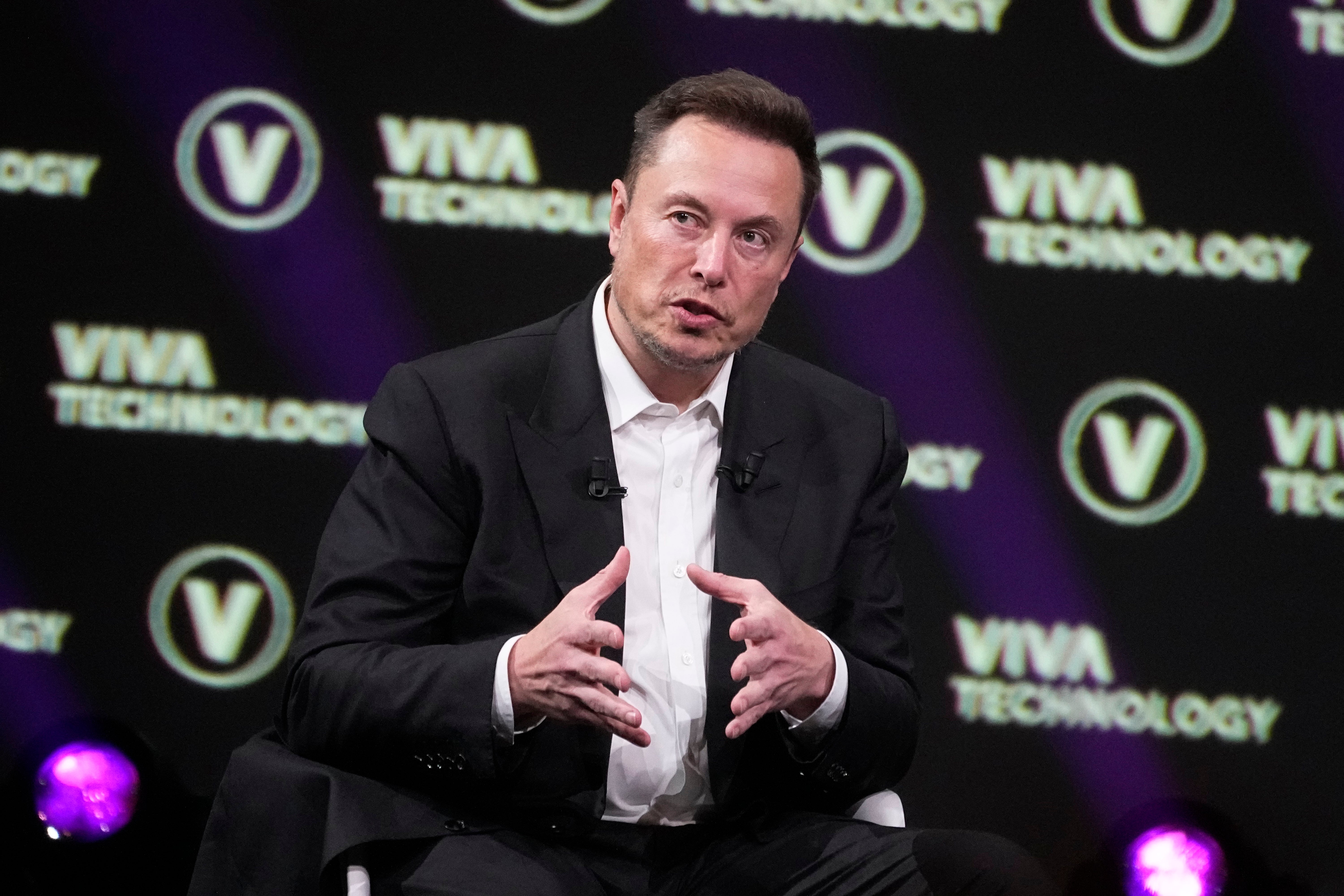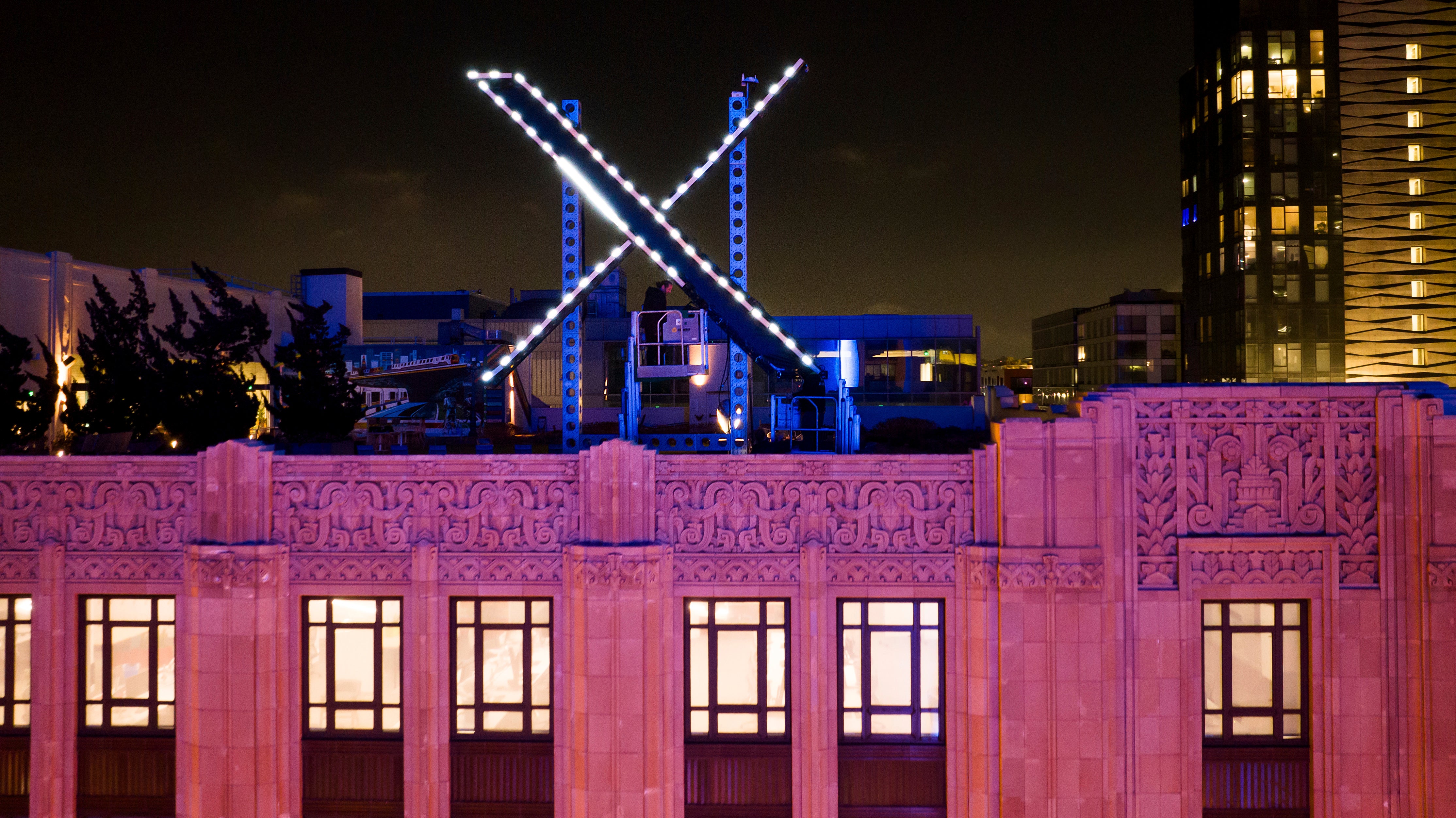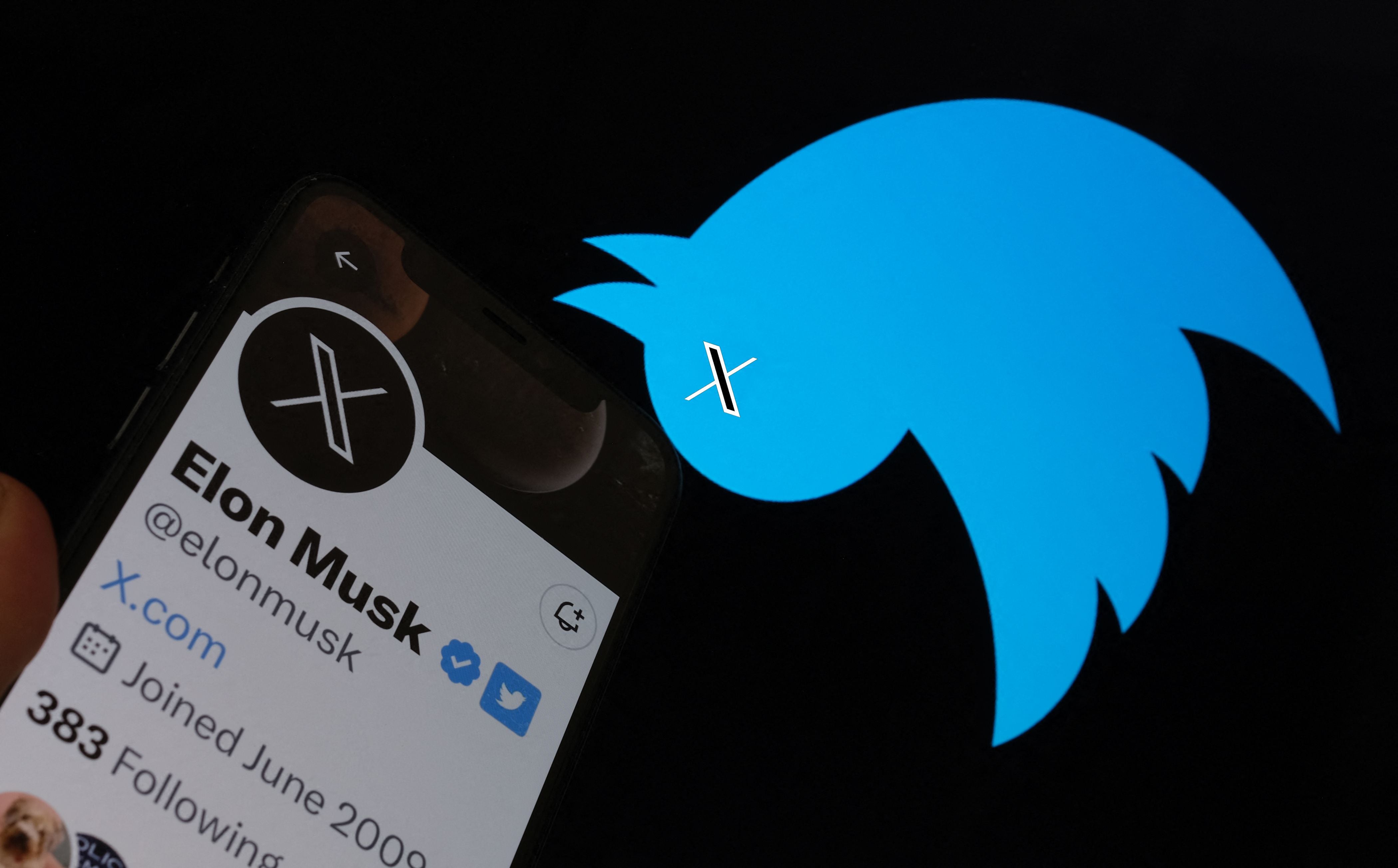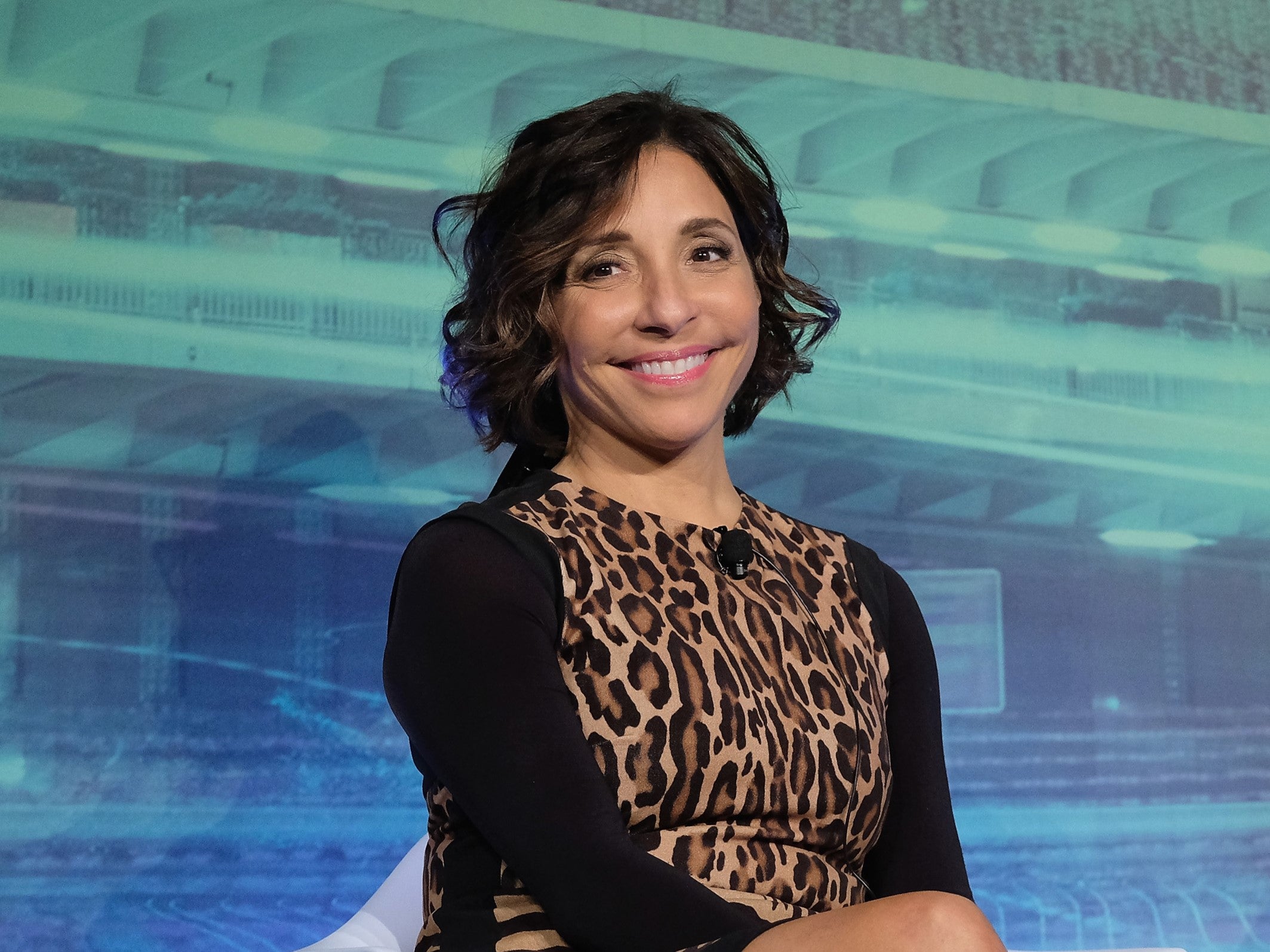Could X’s creditors push the social media company into bankruptcy?
Elon Musk has a ‘spotty reputation’ for paying his debts, but experts say the investment banks who funded his $44bn Twitter takeover will cut him some slack

Since the completion of his $44bn Twitter takeover one year ago this week, Elon Musk has refused to pay the rent, balked at severance fees for fired executives, and sued the law firm that forced him to complete the buyout.
But there’s a nine-figure IOU looming that even the world’s richest person can’t afford to blow off, and could force yet another radical reshaping of the volatile social media platform.
Earlier this month, Twitter/X’s CEO Linda Yaccarino met with representatives from seven investment banks that were reportedly coaxed by Mr Musk into stumping up $13bn towards the takeover.
Amid plunging ad revenues and usage, Ms Yaccarino presented plans for how X would continue to meet its $300m quarterly interest repayments.
Columbia law professor Eric Talley told The Independent that he suspects Ms Yaccarino would have presented a debt restructuring plan ahead of the looming interest payments due on the one year anniversary of the sale.
“The question is, whether the meeting had the flavour of ‘don’t worry, we’re going to be fine, or ‘we’re doing terrible and here’s a restructuring proposal’. If I had to bet, I would bet it was a little but more of the latter,” Mr Talley said.
If the banks don’t like what Ms Yaccarino had to say, X’s creditors could decide to force the company into bankruptcy, try to recover their debts, and place the company formerly known as Twitter up for sale.
Experts tell The Independent this appears unlikely for now, as the headaches associated with such a firesale would be numerous. Besides, most would prefer to stay in Mr Musk’s good graces, they say.
Top of mind for the banks is whether X is complying with its earnings to debt covenants, which are “early warning systems” used to determine the financial health of a company, UC Berkeley Law professor Adam Badawi told The Independent in an interview.
“Twitter might say ‘we’re doing okay, but interest rates are so high right now and if you give us more time’. They will be trying to lay out a timeline to pay back the loans and placate the creditors.”
“If they like what they’re seeing they’ll give them some more runway, and if not they’ll bring the hammer down,” Mr Badawi said.
Mr Badawi says taking over Twitter would be a drastic move, even after the banks appear to have lost billions on the deal.

They would likely prefer to give X some flexibility to pay back the loans on a timeline they can live with, but their patience won’t last forever.
“During the financial crisis, the banks didn’t want to take everyone’s house. They’re in the business of being banks, rather than being landlords. They’re probably not exceptionally eager about taking Twitter and dealing with the sale.”
Few details have emerged from the 5 October meeting, and neither X or Morgan Stanley responded to requests for comment.
But there is speculation about X’s ability to meet its obligations, and questions over whether Mr Musk could offer to buy the debt from the bank for cents on the dollar.
Mr Talley, the Columbia law professor, said that X had been trying all manner of “parlour tricks” to monetise the platform, suggesting it would leave no stone unturned to rearrange its debt.
One possibility is that the lenders “take a haircut” on the debt, or offer to sell it at a reduced price to Musk and his co-investors.
“If it were an ordinary person and not someone like Musk who has the ability to bend gravity and find debt markets elsewhere, I think they already would be forcing this company into a bankruptcy proceeding,” Mr Talley said.
Mr Musk has openly acknowledged that he massively overpaid for Twitter/X, and its value has shrunk dramatically since then as advertisers have fled and the platform has become awash in misinformation and hate speech.
When he rebranded Twitter in July and replaced the distinctive blue bird logo with a black X, it wiped out as much as $4bn from the company’s value, according to brand consultants.
He has since tried to pursue a subscription model, announcing this week he would charge new users in New Zealand and the Philippines.
Ms Yaccarino has at times seemed blindsided by Mr Musk’s impulsive moves, and has said that most of X’s large advertisers who fled are returning.
However, her claims over the summer that usage was at an “all time high” are not supported by independent analysis.
Data released this week by market intelligence firm Similarweb found that global traffic on X was down 14 per cent in the past 12 months. In the United States, it was down by 19 per cent.
The sole bright spot for Mr Musk: traffic to his own personal profile and posts was up 96 per cent.
His decision to remove checkmarks saw a proliferation of misinformation, highlighted by rampant fake viral posts and videos during the Israel-Hamas war.

Mr Musk allowed accounts associated with hate speech back on the platform, and boosted an antisemitic campaign to ban the Anti-Defamation League. This kind of reputational damage would all undoubtedly be of much interest from the banks, Mr Badawi said.
“Elon Musk has a spotty reputation when it comes to making payments on time, if at all,” Mr Badawi said. “It would be quite dangerous to stiff the creditors who could push him into bankruptcy.”
According to Fortune, Mr Musk put about $24bn of his own money into the acquisition. Other investors including Prince Al Waleed of Saudi Arabia, Oracle CEO Larry Ellison, Jack Dorsey put in around $7bn, plus $13bn in loans from the banks.
Since X was taken private in the acquisition, the company has kept its financial situation hidden, leaving observers to parse the tea leaves.
Tulane University law professor Ann Lipton told The Independent that the lack of insight into X’s finances made it difficult to assess its financial viability.
“We know their ad revenues plummeted, we know they haven’t come anywhere near making those up in subscriptions, but we also know they’ve cut a lot of expenses (in part with massive layoffs),” she said via email.
Despite that, Ms Lipton said it was hard to see the banks wanting to take on the responsibility of running such a controversial business.
Twitter/X was not that profitable prior to the deal, and global and financial uncertainties that have arisen in the ensuing 12 months made it even less attractive.
“Owning a platform like Twitter puts you in the political crosshairs across multiple continents — not something I think most of the usual private equity-type investors want to take on,” Ms Lipton said. “So that puts everyone in a pickle and I don’t know what the solution is.”

She told The Independent that the financing deal that Mr Musk put together, before desperately trying to back out of, never appeared to be just about Twitter.
“I always had the impression that the consortium of lenders — and there are a lot of them — were in this to curry favor with Musk more than anything else, and that would mean they don’t want to get into a foreclosure fight.”
Ms Lipton said there had been a lot of “game theory ideas about Musk playing 12-dimensional chess over debt and bankruptcy”.
She added that Mr Musk could decide it was worth putting even more of his $255bn wealth into saving the platform in order to seek opportunities in AI, and his stated goal of turning it into an “everything app”.
Join our commenting forum
Join thought-provoking conversations, follow other Independent readers and see their replies
Comments
Bookmark popover
Removed from bookmarks